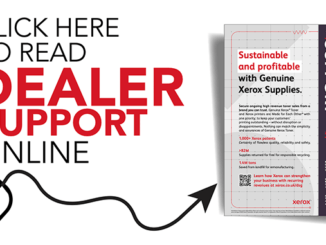
Digital expert Harvey Morton shares his experience of burnout, and tips for helping yourself out of it
CREDIT: This is an edited version of an article that originally appeared on Happiful
2020 has had a significant impact on people’s mental health; we probably won’t see the full effects for a while. The positive from this difficult situation is that people are happier than ever to openly discuss challenges with mental wellbeing. An open conversation about something that is still taboo is one of the few silver linings in the time of COVID-19.
I have had my experiences with poor mental health and it was a consequence of burnout. I won the 2018 IPSE Young Freelancer of the Year award, which was amazing. It resulted in many opportunities, for which I felt blessed. However, the constant effort, and heightened adrenaline from the experience, wiped me out.
I have a torrid relationship with my work, which mostly comes from poor habits. I often say yes when I should say no, and I start to resent my business. I have considered walking away from it before now because it has felt overwhelming.
So, why am I writing this article?
Well, first, it is not to request sympathy. I am lucky to have my business and the many opportunities offered to me. It is incredible, in fact. I want to help.
You see, burnout can affect anyone and is a direct consequence of our busy lives. It is the rock bottom, when we cannot cope with one more straw on that camel’s back, your plate is overflowing, you have had enough. A common consequence of burnout is a loss of joy in life and work, while an extreme consequence is depression and a complete change in behaviour.
How do you know if you are struggling with burnout?
Burnout is that tiredness that will never be alleviated by a good night’s sleep; it is not the exhaustion of a long day at work, but a sense of overwhelming fatigue. You feel tired by life. This is a consequence of chronic exposure to extreme stressors. Not only will you feel overwhelmingly tired, but you’ll probably feel detached, a little cynical ,and ineffective at what you do.
You may be struggling with burnout if you’re constantly combatting your negative self-talk. If you set high standards for yourself that are impossible to meet, this could lead to mental ill-health.
It might be that your stress is caused by poor interpersonal relationships – you might have a demanding boss, or co-workers who make you feel unwelcome. Prolonged exposure to this feeling can lead to interpersonal burnout.
Finally, your workplace might encourage unrealistic expectations, and make you feel as if you are constantly on the edge of losing your job. Such experiences can lead to organisational burnout.
If one or many of these factors – whether people, processes, or personality – are impacting on you each day, you need to address this to protect your mental wellbeing.
How can you help yourself out of burnout?
If this sounds like you, then you can take control of the situation. I have a renewed love of my work because I recognised the signs and sought advice on what to do about it. These tips might help you bring yourself back from burnout.
Identify your stressors
My stressors were saying ‘Yes’ to everything and having no boundaries between work and home life. The more stressors you can remove from your day, the more chance your mind has to lift itself from the perpetual sense of go-go-go.
Try a time audit
Work out where your effort is going in your day. Multi-tasking is something of a myth; when we do this we are not really focused on any of the tasks we are doing. Instead, map out what you do in a day and work out those red zones where your stress creeps up.
Revisit your goals and priorities
Revisiting your expectations of yourself through a realistic and compassionate lens can really ease some of the pressure. You need to consider where these goals originate and whether they are a genuine reflection of what would make you content in life.
Create a wind-down routine
Finally, and I would say most importantly, set up a routine at the end of the day that helps you relax and wind down. Modern work methods blur the edges between life and work so turning off notifications after a set time is an excellent first step. Not looking at your email at evenings and weekends can also help you recuperate. Taking a walk with the dog, having a long soak in the bath or watching your favourite TV programme are all ways you can walk away from work and say ‘It’s done for the day’.
Make this routine a ritual, a habit that you stick with, and respect. You might feel guilty initially, but you will soon find that you are far more productive when you do work.



Be the first to comment